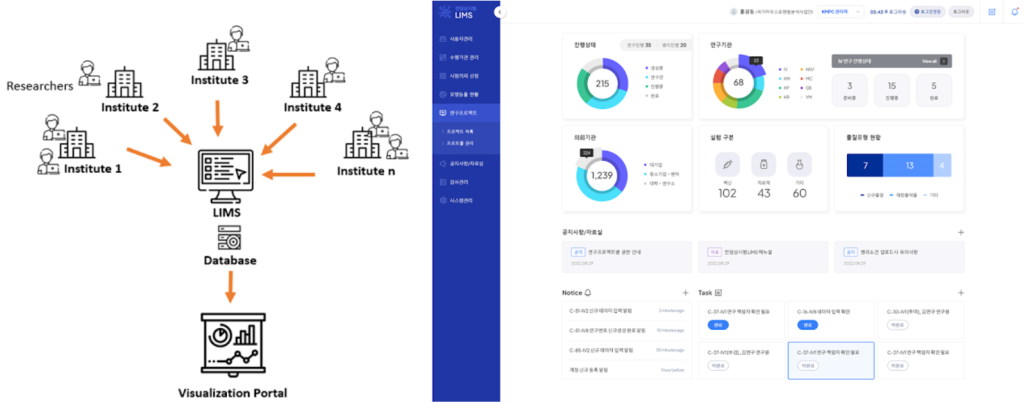LIMS
In the wake of the coronavirus disease 2019 (COVID-19) pandemic, there has been a significant increase in attention and research focus on infectious diseases. This has led to the emergence of novel infectious diseases as a potential future threat. While Laboratory Information Management Systems (LIMS) were initially developed to facilitate rapid non-clinical drug testing for COVID-19, the post-pandemic research landscape has necessitated a shift towards understanding the underlying biological mechanisms of the infectious disease. Therefore, it is a nature growing a need for LIMS to encompass research on other infectious diseases and to accommodate various research protocols.
To address these challenges, we propose advanced version of LIMS (LIMS version 2) that accommodates a flexible and expandable LIMS capable of managing diverse research protocols and standardizing the organization of vast amounts of data. The advanced system incorporates enhanced user authority levels and implements a robust security system to ensure data privacy through encryption measures. A relational database management system (RDBMS) was also developed to efficiently store and manage the structured data.
A report tool was further developed to support multiple file formats (MS Office, HWP, and PDF), streamlining the reporting process and facilitating effective communication of research findings. Moreover, the new component, facilitates the management of stock for model organisms, offering convenient accessibility to the director responsible for overseeing this aspect.
Our LIMS version 2 represents a significant advancement in infectious disease research by providing researchers with a comprehensive platform that supports the investigation of multiple infectious diseases and diverse research protocols. The system’s flexibility and expandability enable it to adapt to evolving research needs, making it an invaluable tool for studying disease mechanisms. By promoting features optimized for non-clinical research, our LIMS version 2 promote researcher not only to continue scientific study and collaboration in post-pandemic era but also to quickly respond to the future pandemic threat.

